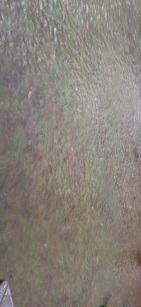Anderson, Kent. “How’s That Abundance Thing Working Out for You?” Scholarly Kitchen [blog]. Society for Scholarly Publishing, Nov. 17, 2016. Link.
Gessen, Masha. “Autocracy: Rules for Survival.” NYR Daily (New York Review of Books). Nov. 10, 2016. Link.
Morrison, Toni. “Mourning for Whiteness.” New Yorker (Nov. 21, 2016): 54. Part of “Aftermath: 14 Writers Respond to the Election.” Morrison’s piece is especially good–no surprise there, but read the rest as well.
Orwell, George. 1984. Harcourt, Brace: 1949. [First American edition.]
Radford, Gary P., and Marie L. Radford. “Libraries, Librarians, And The Discourse of Fear.” Library Quarterly 71.3 (2001): 299-329. Library, Information Science & Technology Abstracts with Full Text. Web. 22 Nov. 2016.
Rosenberg, Tina. “The Art of the Protest.” New York Times, Nov. 21, 2016. Link.
Shear, Michael D. Julie Hirshfeld Davis, and Maggie Haberman. “Trump Retreats From Some of His Extreme Positions.” The New York Times [interview]. Nov. 22, 2016. Link.
~~~~~~~~~~~~~~~~~~~~~~~~~~~~~~~~~~~~~~~~~~~~~~~~~~
I’ll add to this list as I come across more useful material.
Please add your own suggestions via comments.



